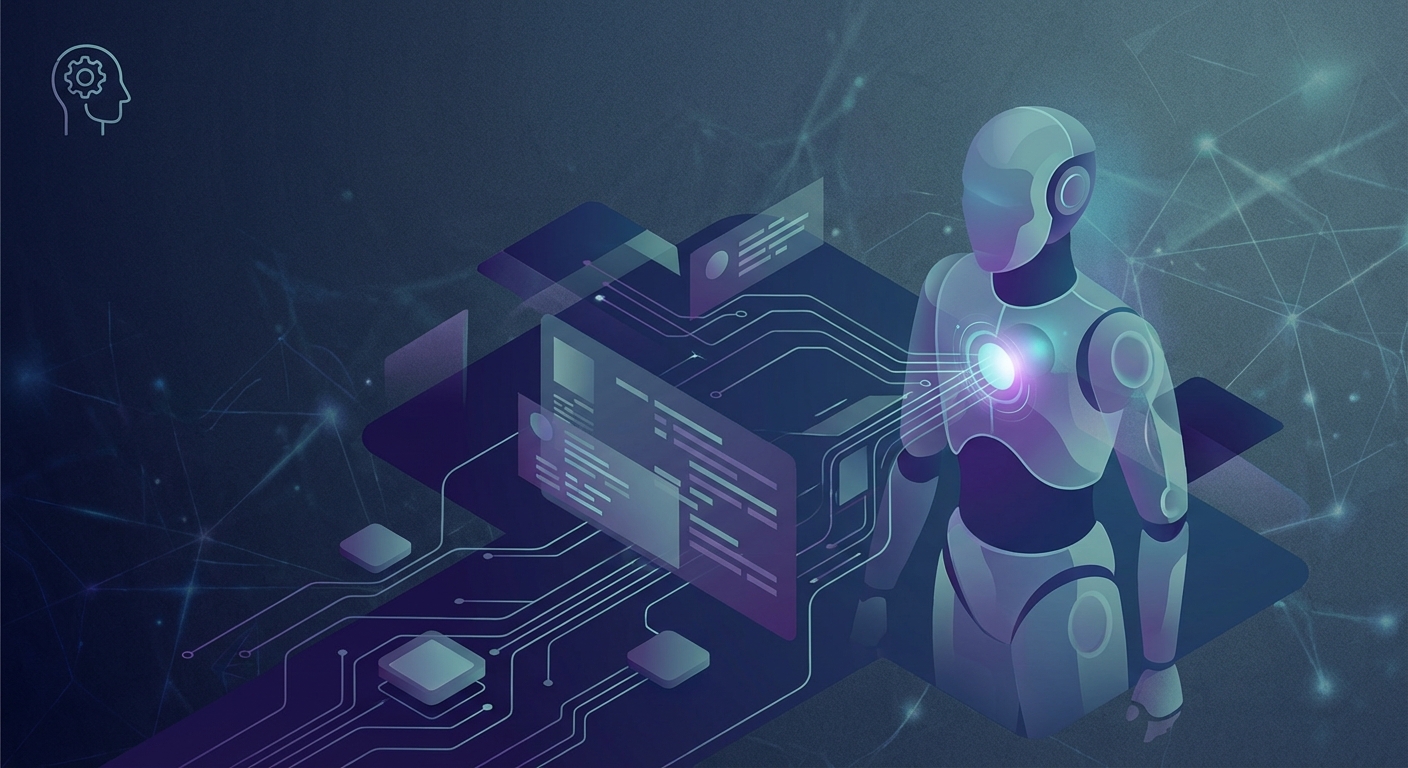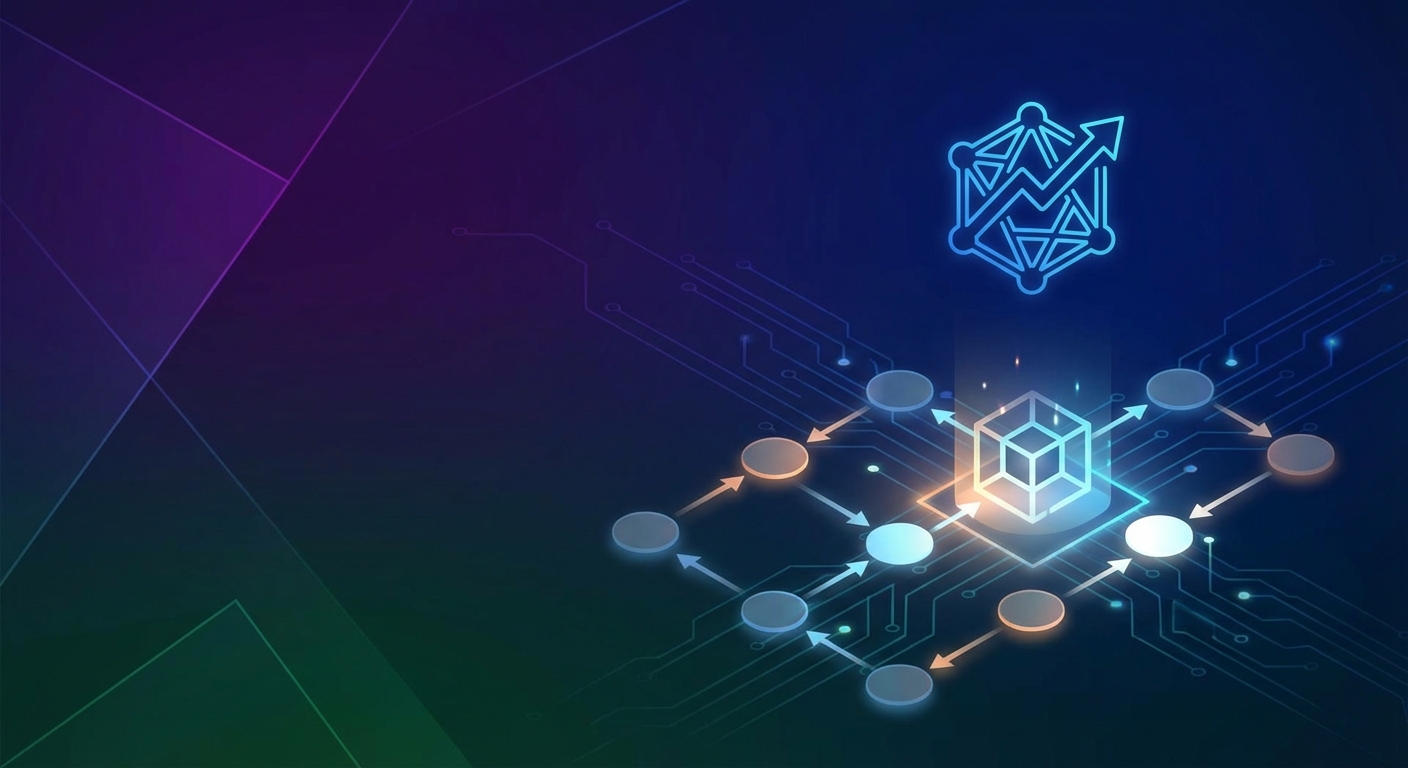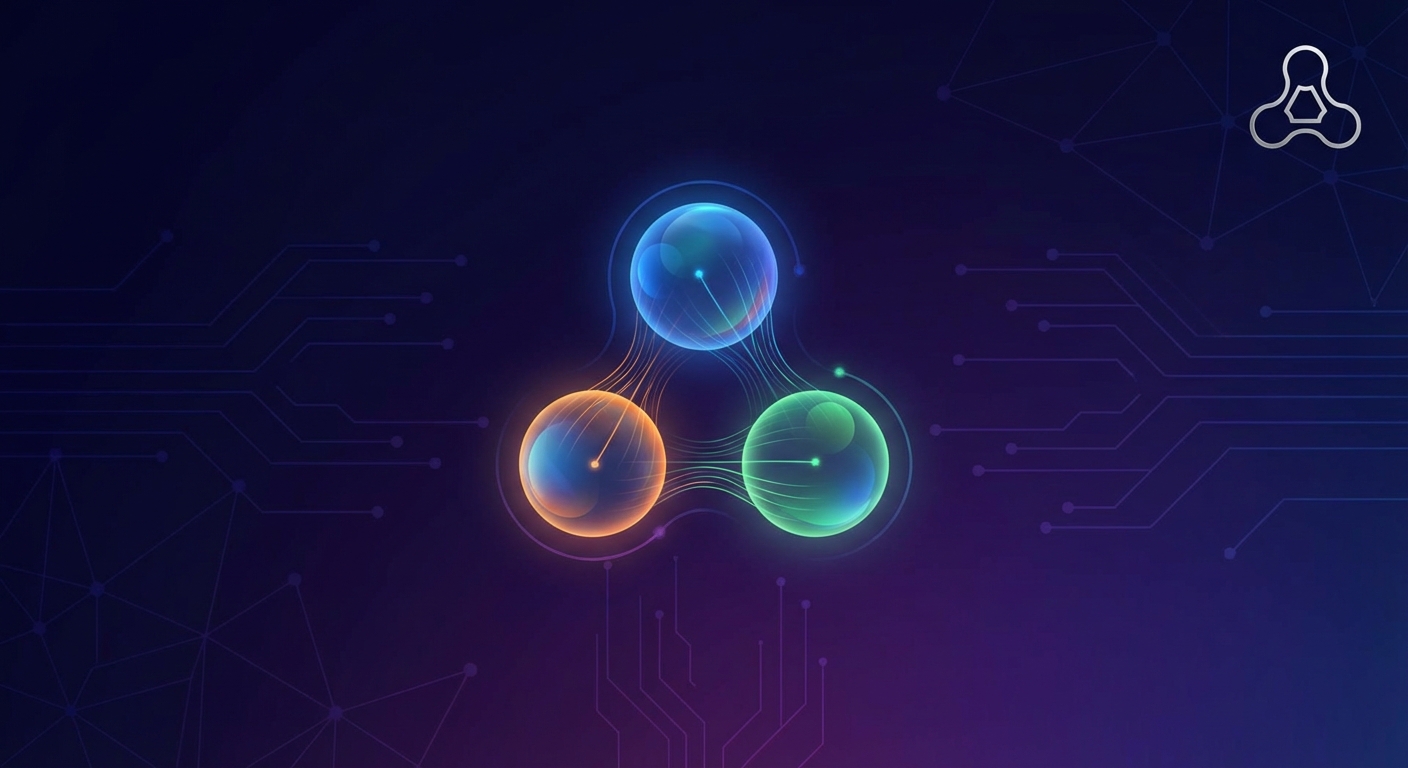What is an AI Agent in Machine Learning?
TL;DR
- This article covers what AI agents are in machine learning, their components, and the different types. We'll explore their applications in business automation, customer service, and more, also discussing the challenges with deployment and the future trends shaping AI agent technology. Understand how AI agents are revolutionizing industries and how you can leverage them for digital transformation.
Understanding AI Agents: The Basics
Okay, so what exactly is an AI Agent? It's not some sci-fi robot, I can tell you that now.
Think of it as a smart piece of software that's got some brains – or at least, access to them. Here's the lowdown:
- They're autonomous, meaning they don't need constant babysitting. You let 'em loose, and they do their thing. Like that one sales ai tool that can write emails for you.
- They perceive their environment. This could be anything from reading data to "seeing" with cameras, or even listening to audio.
- They make decisions. What to do next, based on what they see and their programmed goals. It's like how retail ai uses past purchase data to suggest products you might like.
- And lastly, they take actions. This is the "doing" part – sending an email, moving a robot arm, adjusting a stock trade.
Now, how do these things actually work? Well, it's a mix of a few key ingredients:
- Sensors: These are the "eyes and ears," grabbing info from the world.
- Actuators: These are the "hands and feet," letting the agent do something.
- Environment: This is the world the agent lives in, and interacts with.
- Agent Function: This is the brain, the code that decides what action to take, based on what the sensors pick up. The Agent Function often uses algorithms like rule-based systems (if this, then that), decision trees (a series of yes/no questions), or machine learning models (learning from data to make predictions) to figure out the best course of action.
Next up, we'll dive into the parts that make up the AI agent and how they interact.
Types of AI Agents in Machine Learning
AI agents aren't just one-size-fits-all. Turns out, there's a whole bunch of different types, each with their own way of doing things. It's kinda like cars, you know? You got your little fuel efficient car, and then you got your big 'ol truck.
So, what are the main flavors?
- Simple Reflex Agents: These guys are all about "if-then" rules. See something, do something. Like a basic thermostat: if it's too hot, turn on the AC. It's simple, but not always the smartest. They don't like, remember stuff.
- Model-Based Reflex Agents: Okay, now we're getting a little fancier. These agents have a "world model" – basically, they try to keep track of what's going on around them. This helps them make better decisions, especially when they can't see everything directly. Think of a self-driving car that uses sensors to build a map of its surroundings.
- Goal-Based Agents: These ones have a goal in mind (shocking, I know). They don't just react; they plan. For example, a robot trying to navigate a maze isn't just randomly moving; it is trying to achieve a goal.
- Utility-Based Agents: Now we're talking about agents that want to be happy. They have a "utility function" that tells them how good or bad different outcomes are. This function quantifies desirability, assigning a numerical value to states or actions. For instance, a recommendation system might define a utility function that considers factors like user engagement, purchase probability, and product relevance. The agent then chooses actions that aim to maximize this utility score.
These are some of the core types of AI agents.
Real-World Applications of AI Agents
AI agents aren't just for the movies – they're quietly changing how things get done in tons of industries. Bet you didn't know that, huh?
Automating repetitive tasks: Think of all those boring, manual tasks that eat up your day. AI agents can swoop in and automate 'em. For example, an AI agent can process an invoice by reading the document (using optical character recognition or OCR), extracting key information like vendor name, invoice number, date, and amount, and then entering this data into an accounting system. Similarly, for data entry, an agent might read data from one source, validate it against predefined rules, and then input it into another database.
Improving efficiency: By automating these tasks, businesses can free up their employees to focus on more important, strategic work. It's kind of like getting a robot assistant who never complains.
Reducing operational costs: Less manual labor means lower costs. AI agents can work 24/7 without needing a salary, benefits, or even a coffee break.
Chatbots and virtual assistants: Ever chatted with a website and felt like you were talking to a real person? That's probably an AI agent. These chatbots can answer questions, provide support, and even guide customers through purchases.
Handling customer queries: AI agents can handle tons of customer inquiries at once, without making customers wait on hold. This is especially useful for common questions or issues.
Providing 24/7 support: Customers don't just need help during business hours. AI agents can provide support around the clock, ensuring that customers always have someone to turn to.
Diagnosis and treatment: AI agents can analyze medical images, patient data, and research papers to help doctors make more accurate diagnoses and treatment plans. It's like having a super-smart medical assistant.
Personalized medicine: AI agents can help tailor treatments to individual patients based on their unique genetic makeup, lifestyle, and medical history. This can lead to more effective and targeted care.
Drug discovery: Developing new drugs is a long and expensive process. AI agents can speed up the process by analyzing vast amounts of data to identify potential drug candidates.
Demand forecasting: Predicting how much of a product you'll need is tricky. AI agents can analyze historical data, market trends, and even social media chatter to make more accurate forecasts.
Inventory optimization: Holding too much inventory is expensive, but running out of stock is even worse. AI agents can help businesses optimize their inventory levels to minimize costs and maximize sales.
Logistics management: Getting products from point A to point B can be a logistical nightmare. AI agents can optimize routes, track shipments, and even predict potential delays.
So, yeah, AI agents are pretty useful across multiple industries.
Challenges and Considerations in AI Agent Deployment
Okay, so you've built your AI agent, and you're ready to unleash it on the world. Awesome! But hold your horses, because deploying these things ain't always a walk in the park; there's a few potholes you'll need to dodge.
- Data, data, everywhere, but is it any good? AI agents are hungry beasts, and they need lots of data to learn. But it's not just about quantity, it's about quality, too. Garbage in, garbage out, right? If your data is biased or incomplete, your agent will be, too. And nobody wants that. For example, if you're building an ai-powered hiring tool, you better make sure your training data isn't skewed towards one gender or ethnicity.
- Uh oh, ethics alert! Speaking of bias, ai agents can inherit all sorts of unwanted prejudices from their training data and that's not good. So, you need to think long and hard about fairness, transparency, and accountability. How do you make sure your agent isn't discriminating against anyone? How do you explain why it made a certain decision? These are tough questions, but you gotta answer them.
- Are you secure? I mean, really secure?. ai agents can be vulnerable to cyberattacks, just like any other piece of software. And if someone hacks your agent, they could do some serious damage. Think about it a malicious actor could manipulate a ai-powered trading bot to make bad trades, or even steal sensitive data. So, you need to lock things down tight.
And that's not all, folks. You also need to think about governance and compliance. Governance, in this context, means establishing clear policies and procedures for how AI agents are developed, deployed, and managed. This includes defining roles and responsibilities, setting ethical guidelines, and ensuring oversight. Compliance means adhering to relevant laws, regulations, and industry standards. For example, data privacy regulations like GDPR or CCPA would need to be considered, as well as industry-specific rules for finance or healthcare.
Deploying ai agents can be challenging, but it's also incredibly rewarding.
The Future of AI Agents
Okay, so where are AI agents headed? Honestly, it feels like we're just scratching the surface. It's kinda hard to predict exactly what will happen, but here's a few things I'm keeping an eye on:
- Reinforcement learning is gonna get HUGE. Think of AI agents that learn by doing, constantly tweaking their actions based on feedback. Imagine this tech applied to robotics, where robots learn complex tasks through trial and error.
- iot ain't going anywhere. ai agents will become more intertwined with the Internet of Things (IoT). Picture smart homes that actually learn your habits and adjust everything automatically.
- edge computing will come into its own. Running ai closer to the data source, rather than in the cloud. This is crucial for things like self-driving cars, where decisions need to be made in real-time. Edge computing reduces latency because the data doesn't have to travel all the way to a remote server and back, which is critical for applications where milliseconds matter. It also conserves bandwidth, as only necessary processed data needs to be sent to the cloud, and it can enhance privacy by keeping sensitive data local.
AI agents are poised to not just change industries, but completely transform business models. Exciting, right?






